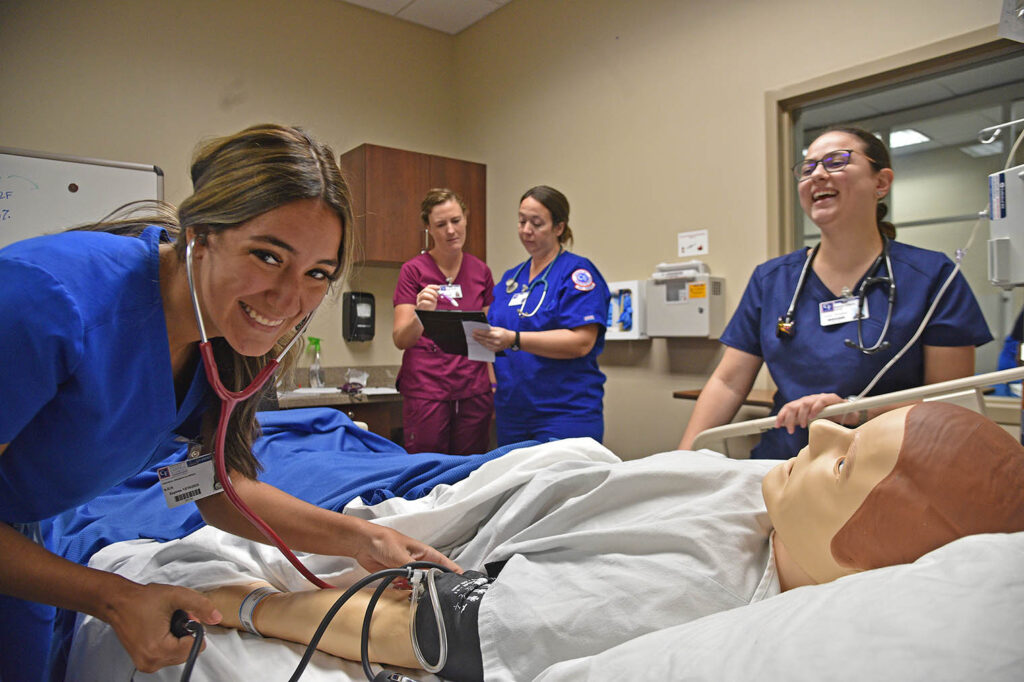
Nursing education is a crucial investment for aspiring nurses, but understanding the costs involved is essential. Whether you’re pursuing an associate degree or a doctoral program, the financial aspects play a significant role. In this article, we’ll explore the average costs of colleges with nursing programs at different degree levels and discuss potential financial aid resources.
Associate Degree in Nursing (A.D.N.)
- Duration: A.D.N. programs typically last two years.
- Cost Range:
- Public Colleges: A.D.N. programs at public colleges can cost around $4,000 to $7,000 per year.
- Private Universities: Private schools charge higher tuition rates, with some A.D.N. programs exceeding $50,000 for the entire degree.
- Total Cost: Considering the two-year duration, the total cost for an A.D.N. degree ranges from $8,000 to $14,000.
Bachelor of Science in Nursing (B.S.N.)
- Duration: B.S.N. programs typically span four years.
- Average Cost: On average, a B.S.N. degree costs approximately $70,000 over the four-year period.
Advanced Graduate Nursing Degrees

- Master of Science in Nursing (M.S.N.):
- Tuition varies widely based on the institution and whether you attend in-state or out-of-state.
- Public universities: $2,000 to $4,000 per year.
- Private universities: Up to $25,000 per year.
- Doctorate of Nursing Practice (D.N.P.):
- The cost of D.N.P. programs depends on factors like stipends and institutional aid.
- Private schools may charge over $150,000 for the entire program.
Financial Aid Resources
- Scholarships and Grants: Explore scholarships specifically for nursing students.
- Federal Student Aid (FAFSA): Complete the FAFSA to determine eligibility for federal grants, loans, and work-study programs.
- State and Institutional Aid: Check if your state or college offers additional financial assistance.
Return on Investment (ROI)
While nursing education requires an investment, consider the long-term benefits:
- Job Opportunities: Nursing offers stable employment and competitive salaries.
- Personal Fulfillment: Making a difference in patients’ lives is rewarding.
- Career Advancement: Higher degrees (e.g., M.S.N., D.N.P.) can lead to leadership roles and increased earning potential.
In summary, weigh the costs against the potential benefits when choosing a nursing program. Research colleges with nursing programs, compare tuition, and explore financial aid options to make an informed decision. Remember that investing in your nursing education can lead to a fulfilling and impactful career.
Conclusion
Conclusion: Understanding the costs associated with nursing programs in various colleges is crucial for aspiring nurses planning their educational journey. From associate degrees to advanced graduate programs, tuition varies widely across institutions, with factors such as public versus private schools and degree levels influencing expenses. However, investing in nursing education offers significant long-term benefits, including job stability, personal fulfillment, and career advancement opportunities. By researching colleges with nursing programs, comparing tuition rates, and exploring financial aid options, prospective students can make informed decisions to pursue their dreams of becoming healthcare professionals. For those seeking the best nursing colleges in the USA, thorough consideration of costs and benefits is key to a successful and rewarding educational experience.




















